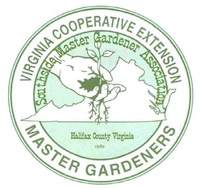VCE Southside Master Gardener
Fall gardening or second plantings prolong the growing season and you can reap a lot more from your garden even after the peak summer season. Gardens give you the most dividends when planting produce food from spring through summer and up to the first frost and even beyond. In many areas, including ours, crops can be planted in midsummer (July and August) for a fall or winter harvest. Wouldn’t you enjoy eating fresh vegetables for eight months of the year instead of a few?

English peas are a good late season crop that is so tasty.
Plants that thrive when planted in midsummer must mature quickly and tolerate frost. Crops planted in midsummer may take longer to mature, but the plus side is that they will have fewer problems with pests. Knowing the average first frost date for our area will help you calculate “planting deadlines” so your plants have time to mature before temperatures drop and the first frost hits. Last year the first frost occurred the last week in October in Halifax and Mecklenburg County. Consult the USDA hardiness zone map so you will know what plants can thrive in our area (we are in 7a or 7b depending on where you are located). Seed packets usually have this map on the back. This knowledge will help you choose which crops to plant and when you should have them in the ground.
Quick-maturing vegetables include beets, bush beans, carrots, radishes, cucumbers (vine and bush), kohlrabi, spinach, zucchini and Swiss chard (tastes like spinach and have brightly colored stalks). Green peas and sugar peas also have a short growing period. If some of these do not mature fast enough you can use row covers or garden fabric to prevent frost damage until harvest.
The crops that tolerate a light frost and grow well even when the temperature drops include most brassicas (broccoli, Brussels sprouts, cauliflower, cabbage, kale and kohlrabi). I had a crop of kohlrabi grow all last winter, even when the temperature dropped into the 20’s and they did just fine. Also, carrots, lettuce (try early harvest varieties that will produce before cold weather sets in), scallions, spinach, parsnips, rutabagas and turnips can be grown for a fall harvest. The list is quite long. Kale and Brussels sprouts taste better when grown in cool weather because they react to cold by producing sugars which sweeten them.
Keep in mind that spinach, turnips, rutabagas and scallions can be sown directly in the ground, but you will need to start most brassicas indoors a few weeks before you plant midsummer.
A good practice, that is easy, soon as early-season plants (like lettuce) start to bolt (go to seed), pull them out and replant a different crop in that space. You can avoid diseases to one plant type and balance nutrients in the soil by rotating crops.
Summer will bring a lot of heat which can roast newly sprouted seeds. You can keep this from happening by keeping the soil moist, mulched and shaded. If you have a trellis or tall plants, they can provide natural shade to create a cooler location for the seedlings. This is really important when temperatures are in the high 80’s and in the 90’s. Keep the soil rich by mixing compost or organic fertilizer which will replenish the nutrients in the soil between your plantings.
And don’t forget to plant some cool weather flowers to enjoy in the fall! Try marigolds, alyssum, and snapdragons. Others you could plant are goldenrod, tickseed (coreopsis), Joe Pye, autumn crocus, Japanese anemones and blue mist shrub. Your pollinators will thank you, too!
Good resources are “Virginia’s Home Garden Vegetable Planting Guide: Recommended Planting Dates and Amounts to Plant” and “Planning the Vegetable Garden” on the Virginia Cooperative Extension website.
The garden is a good place to get out of the house and practice ‘social distancing’ due to COVID-19. The Halifax Extension office is closed, but if you have gardening questions, you can reach an Extension Master Gardener or Extension staff member by sending an email to wmccaleb@vt.edu or ask@ssmga.org., or call and leave a message at the Help Desk at (434) 830-3383. Leave your name, phone number and question and we will get back to you. Keep washing your hands, wear your mask and plant some late season crops for a longer harvest this fall.
